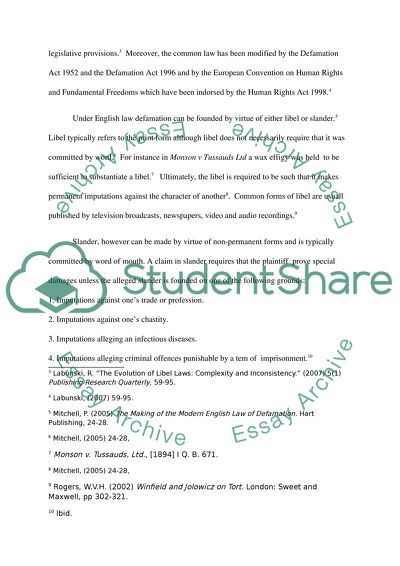Cite this document
(“Is there an appropriate balance between the right to protect your Essay”, n.d.)
Is there an appropriate balance between the right to protect your Essay. Retrieved from https://studentshare.org/miscellaneous/1553308-is-there-an-appropriate-balance-between-the-right-to-protect-your-reputation-with-the-law-of-defamation-and-the-right-to-free-speech
Is there an appropriate balance between the right to protect your Essay. Retrieved from https://studentshare.org/miscellaneous/1553308-is-there-an-appropriate-balance-between-the-right-to-protect-your-reputation-with-the-law-of-defamation-and-the-right-to-free-speech
(Is There an Appropriate Balance Between the Right to Protect Your Essay)
Is There an Appropriate Balance Between the Right to Protect Your Essay. https://studentshare.org/miscellaneous/1553308-is-there-an-appropriate-balance-between-the-right-to-protect-your-reputation-with-the-law-of-defamation-and-the-right-to-free-speech.
Is There an Appropriate Balance Between the Right to Protect Your Essay. https://studentshare.org/miscellaneous/1553308-is-there-an-appropriate-balance-between-the-right-to-protect-your-reputation-with-the-law-of-defamation-and-the-right-to-free-speech.
“Is There an Appropriate Balance Between the Right to Protect Your Essay”, n.d. https://studentshare.org/miscellaneous/1553308-is-there-an-appropriate-balance-between-the-right-to-protect-your-reputation-with-the-law-of-defamation-and-the-right-to-free-speech.


